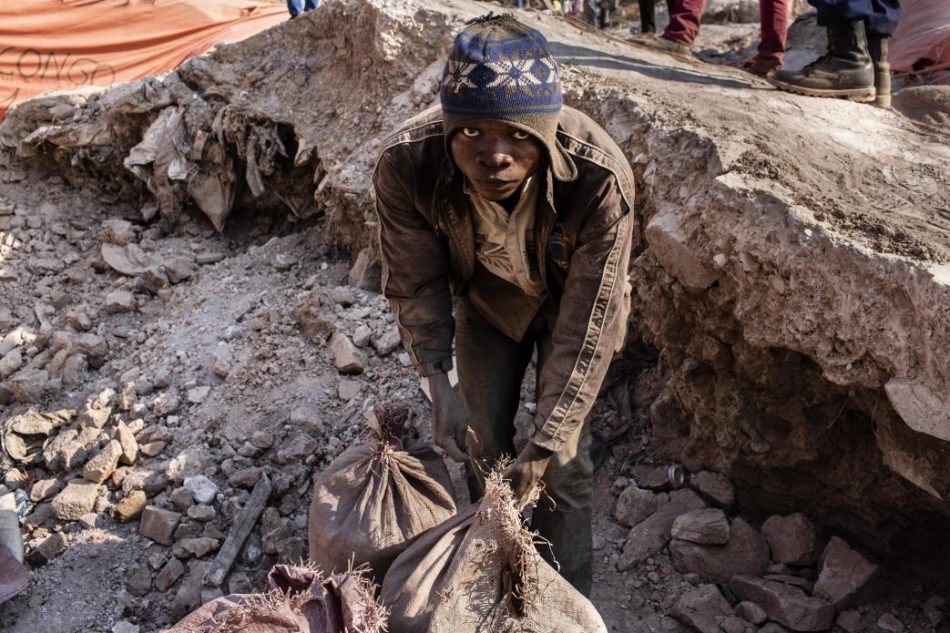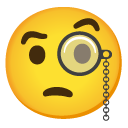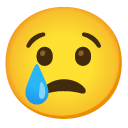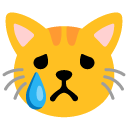
The buying and selling of slaves, especially of African people who were taken to North and South America from the 16th to the 19th century
Cambridge Dictionary
Page Description
Discover the effects of cobalt mining in the Democratic Republic of the Congo, including its environmental impact, labor issues, and global significance.
Cobalt-mining in the Democratic Republic of the Congo is a complex issue with many key points, some of which are:
The DRC is one of the world’s largest producers of cobalt, a key component in the batteries that power electric vehicles, smartphones, and other electronic devices.
Cobalt mining in the DRC is largely done by artisanal and small-scale miners, who often work in dangerous and exploitative conditions.
The mining industry in the DRC has been plagued by corruption, violence, and human rights abuses, with armed groups and state security forces often involved.
The demand for cobalt has led to an increase in child labor in the DRC, with an estimated 40,000 children working in cobalt mines.
The environmental impact of cobalt mining in the DRC is also a concern, with the use of toxic chemicals and the destruction of ecosystems.
Efforts are being made to address these issues, with companies and governments implementing responsible sourcing policies and investing in local communities, but progress has been slow.
There is a growing awareness among consumers and investors about the ethical and environmental implications of cobalt mining in the DRC, and pressure is mounting on companies to ensure that their supply chains are free from human rights abuses and environmental harm.
1 This is what we die for: Child labour in the DRC cobalt mines
19 jan. 2016
.
2 Top tech companies sued over child cobalt mining deaths in Congo
17 dec. 2019
3 Maisha A New Life Outside the Mines
31 okt. 2015
4 DR Congo cobalt miners work in treacherous conditions
25 nov. 2021
 ️
️ ️
️ ️
️ ️
️
 dependency on Africa looking like it will be gone soon if all the resources are dug out of the Earth.
dependency on Africa looking like it will be gone soon if all the resources are dug out of the Earth. ️
️ ️ people just don’t care
️ people just don’t care5 Kinsevere: Beyond Mining
12 sep. 2014

6 Blood Cobalt: The Congo’s Dangerous and Deadly Green Energy Mines | Foreign Correspondent
In première gegaan op 24 feb. 2022
The world is embracing renewable technologies but how much do we know about the metals that are powering this green revolution?
This story exposes the shocking truth about the mining of cobalt, a metal crucial to making the batteries in electric cars, laptops and mobile phones.
The world’s richest deposits of cobalt are in the Democratic Republic of the Congo, one of the poorest countries on earth. It produces around 70% of world output.
This buried treasure has lured hundreds of thousands of Congolese to work in the country’s mines, big and small.
But mining is dangerous, corruption and violence is rife and though child labour has been banned, it’s common.
In recent years, the cobalt trade has been taken over by Chinese companies which operate or finance 15 of the 19 big industrial mines. Locals say that under their management, low safety standards have dropped even further.
“Unfortunately people even are dying for lack of safety,” says an employee of one big company.
Australian reporter Michael Davie travels to this mineral-rich country to investigate the industry – from the major Chinese-owned companies to the conditions of the small-scale workers on the fringes of the big mines.
It’s a dangerous mission and Davie is followed, harassed and arrested by mine and government security officials.
What he uncovers is shocking.
The day he arrives there’s been a mine cave-in, killing at least six miners.
He sees miners tunnel 25 metres underground with no safety equipment.
He meets primary school-age children handling cobalt, a toxic metal which can cause serious health effects.
He meets a mother whose 13-year-old son has just been killed on the fringes of a mine whose embankment collapsed. Companies in the Congo are obliged to make sure they don’t harm the communities around them.
He secures a video which shows a man being beaten by a Congolese soldier as mine managers watch on, laughing.
And he interviews a whistleblower who accuses the Chinese mine he works for of covering up the deaths of co-workers. He also says the country isn’t benefitting from the boom.
“There is no investment coming back in terms of environment, infrastructure…We don’t have road facilities, we don’t have communication. There is nothing.”
But there’s hope amidst the gloom. Davie meets the Good Shepherd Sisters, nuns who’ve set up a school near the mines and educated thousands of children.
“If the children are given education, if schools are spread all over and every child goes to school, then we are redeeming this country,” says one nun.
This is a rare insight into a powerful industry which operates a dangerous business with seeming impunity. All of us use the end products.
About Foreign Correspondent:
Foreign Correspondent is the prime-time international public affairs program on Australia’s national broadcaster, ABC-TV. We produce half-hour duration in-depth reports for broadcast across the ABC’s television channels and digital platforms. Since 1992, our teams have journeyed to more than 170 countries to report on war, natural calamity and social and political upheaval – through the eyes of the people at the heart of it all.
Contributions may be removed if they violate ABC’s Online Terms of Use http://www.abc.net.au/conditions.htm (Section 3). This is an official Australian Broadcasting Corporation YouTube channel



 leak. The rat is beaten .
leak. The rat is beaten .7 Smartphones: The world in your pocket – The Congolese Blood in your hand
9 mrt. 2015
The disclosures come thanks to the reform-focused Dodd-Frank Act, which now requires thousands of companies to release an annual report detailing the use of so-called conflict minerals. Tungsten, tin, tantalum and gold-products common in electronics and known collectively as “3TG” are mined heavily in the Democratic Republic of the Congo and other central African countries. Proceeds from some of the mines are used to fun an ongoing war that’s become the deadliest armed conflict since World War 2, according to one study.
However, because such materials travel through a variety of smelters, manufacturersand distributors before they end up in a phone or laptop, vetting the entire manufacturing line is a difficult, expensive process. The SEC has estimated that compliance with the new rule cost companies $3 to $4 billion in the first year and will cost $206 to $609 million in subsequent years.
In regulatory filings, the tech giants continuously said they did not have sufficient data to fully determine whether conflict minerals were present in their products. Google wrote in its filing that “based on our due diligence, we have reason to believe that portion of the 3TG used in our products originated from the covered countries, but we have not identified any instances of sourcing that directly or indirectly supported conflict in the covered countries”. The company disclosed that about 36 percent of its smelters in the Democratic republic of the Congo region have been certified as not trafficking in conflict minerals, but it could notmake a firm determination about other suppliers.
Apple, which began tracking the practices of individual smelters in 2010, said that 80 percent of the smelters it does business with in the region do not use conflict minerals. But like Google, Apple said it did not know enough to definitively say whether the other suppliers use them.
Intel, meanwhile, said that its microprocessors and chipsets are conflict-free, but it could not determine the conflict status of its other products. And Amazon said “majority” of the suppliers that contribute to its kindle pipeline are not using conflict minerals.
Every company which made a disclosure said they would pressure their questionable suppliers to be certified as compliant with conflict-free standards.
overall, the reports indicate that tech companies are at least advocating for the manufacture of conflict-free products, but they are finding it difficult to implement such initiatives on a practical level. No ones is keen on abandoning the region entirely-despite raised awareness of conflict minerals, the Democratic Republic of the Congo’s share of tantalum production actually increased in 2013, according to the Wall street Journal. Some companies even argue that continuing to draw minerals from the region could allow them to be a force for good.
“Rather than simply funneling its demand through a limited number of verified smelters or those that are not sourcing in the Democratic Republic of the Congo,” Apple wrote, “Apple believes the best way to impact human rights abuses on the ground in the Democratic Republic of Congo is to have critical mass of smelters verified as conflict-free, so that demand from other questionable sources is reduced.”
8 Toxic Cost of Going Green | Unreported World
31 okt. 2021
Unreported World investigates the dirty business of cobalt mining in the Democratic Republic of Congo. The mineral is fuelling the planet’s green revolution, but at what cost?
Around seventy percent of the world’s cobalt is mined in the Central African country, mostly from the southern Katanga area, thought to be one of the ten most polluted places on earth. Reporter Jamal Osman travels to Kolwezi, a city dependent on supplying Cobalt, a critical component for electric cars and rechargeable batteries. Residents are employed by large multinational companies, or in smaller, and more dangerous artisanal mines. We meet the men who clamber down dark weaving airless tunnels to extract cobalt for as little as $150 per month. But is the paycheck worth the health risks that doctors have uncovered?
Director: Girish Juneja
Series Producer: Andy Lee
Executive Producer: Ed Fraser
Production Company: Channel 4 News
Toxic Cost of Going Green | Unreported World – Blog
Free Garbage Drink Prank
9 mei 2011


Natalia Dashan
4 jaar geleden